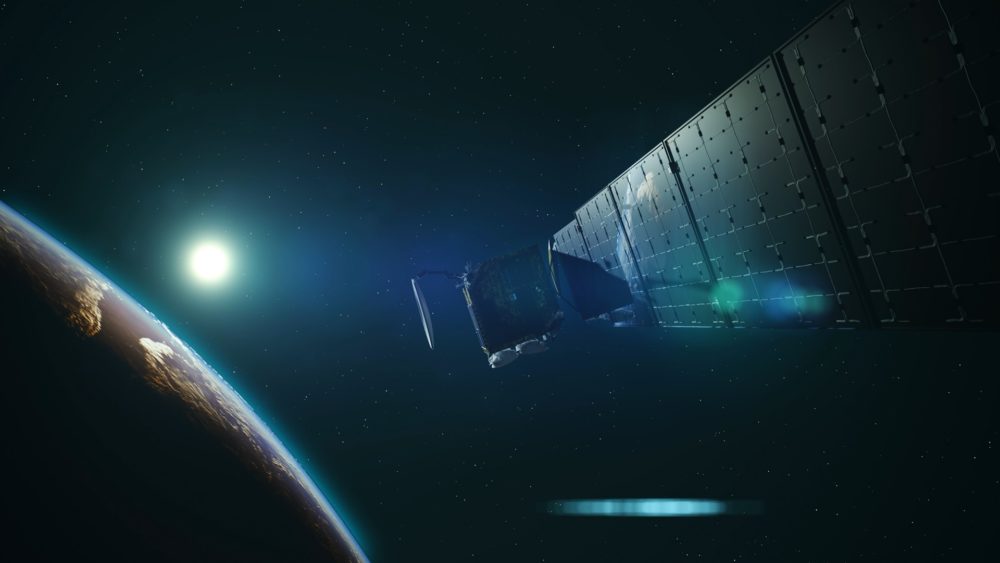 CLOUD
CLOUD
 CLOUD
CLOUD
 CLOUD
CLOUD
Microsoft Corp. today debuted Azure Space, a new portfolio of cloud products that will address use cases such as simulating satellite constellations and providing internet connectivity to edge devices.
Microsoft is partnering with SpaceX Corp. to support parts of the portfolio.
Azure Space is, as the name implies, aimed in large part at space sector customers. The portfolio includes Microsoft’s recently introduced Azure Orbital service, which gives satellite operators access to terrestrial antennas, or ground stations, for communicating with their orbiting craft. With the introduction of Azure Space, Microsoft is adding yet more features for satellite operators as well as capabilities targeted at other organizations.
The first product announced today is a simulator called Azure Orbital Emulator. It enables customers to create software replicas of individual satellites, or even entire constellations, that they can use as a test bed for validating components before launch. Engineers can use the software to test the software tasked with keeping satellites in formation. Or they could perform a virtual trial run of the networking system that will connect the constellation to antenna on the ground.
Another new offering introduced today is the Azure Modular Datacenter, or MDC. It’s a compact data center that comes in a ruggedized container, can be transported by truck and is capable of operating even without access to a reliable power supply. Moreover, if there’s an internet outage, the MDC switches to satellite communications.
“In the event of a network disruption, the network high-availability module will move traffic from the impacted network to a backup satellite connection,” Bill Karagounis, a general manager for global industry sovereign solutions at Microsoft, wrote in a blog post. “Alternatively, MDC can use satellite communications as the primary connection where no other network is available.”
Microsoft will be delivering the satellite connectivity features of the MDC through a newly expanded partnership with satellite operator SES SA. It also announced a separate alliance with SpaceX Corp. to offer internet connectivity to Azure customers via the latter company’s Starlink constellation. Starlink is a network of satellites situated in low-Earth orbit, at a lower altitude than traditional communications constellations, that promises to provide low-latency global internet coverage.
Microsoft said it will work with SpaceX to enable connectivity between its cloud data centers and field-deployed assets. Additionally, the companies plan to integrate Starlink with “Azure networking capabilities.” That presumably refers Azure Orbital, the antenna service Microsoft debuted ahead of the introduction of Azure Space, which offers access to antennas operated both by the technology giant and its partners.
“Resilient satellite communications, coupled with Azure’s ability to provide high-performance computing, machine learning and data analytics opens many new opportunities for both public- and private-sector organizations,” said Tom Keane, the corporate vice president for Azure.
“Azure’s new initiative supports public and private missions in the space industry, but more than other vertical markets, is focused on combining Azure’s existing building blocks with partners that have expertise in the space industry,” Jeff Valentine, chief technology officer at cloud management platform CloudCheckr, told SiliconANGLE. “This makes sense given Azure’s growth into mission-critical workloads and success in building deep relationships with an industry vertical sales motion, just as they do with healthcare, telecommunications and retailers.”
Support our mission to keep content open and free by engaging with theCUBE community. Join theCUBE’s Alumni Trust Network, where technology leaders connect, share intelligence and create opportunities.
Founded by tech visionaries John Furrier and Dave Vellante, SiliconANGLE Media has built a dynamic ecosystem of industry-leading digital media brands that reach 15+ million elite tech professionals. Our new proprietary theCUBE AI Video Cloud is breaking ground in audience interaction, leveraging theCUBEai.com neural network to help technology companies make data-driven decisions and stay at the forefront of industry conversations.